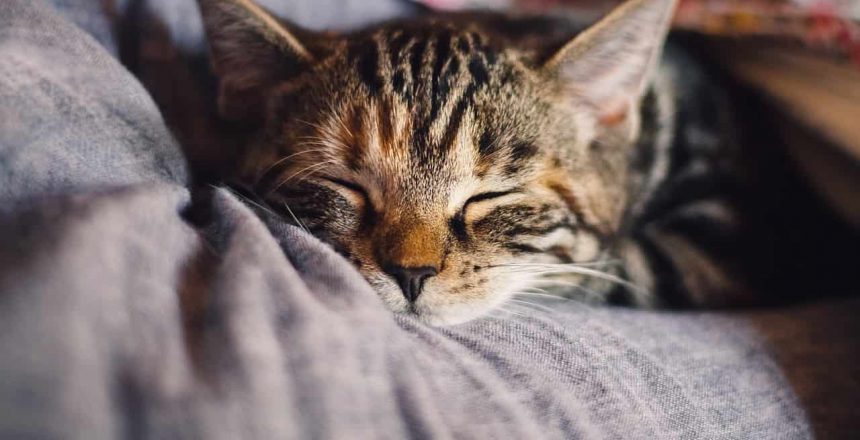If you have a feline companion at home, you probably wake up to mews and face nudges paired with the mysterious noise that says it is time for breakfast: purring. You might even be sitting next to a purring machine right now as you are reading this article on your couch! Purring has often been a mystery to scientists and animal behaviorists, and there is still a lot that many of them cannot agree on or prove. But we’re going to try to uncover some of the mystery behind every cat Mom or Dads favorite feline behavior.
First things first: Not all cats purr! There are two kinds of cats, cats that purr, and cats that roar. The Panterinae subfamily of cats (otherwise known as big cats), like lions, leopards, jaguars, and tigers (oh my!) are not capable of purring. But domestic cats and other “big” cats like bobcats, cheetahs, pumas, and wildcats can purr.
So How Exactly Do Cats Purr?
The common understanding is that a cat’s brain sends signals to its laryngeal muscles and tells them to vibrate, resulting in a sound not much unlike a drummer lightly trilling on a basketball. The muscles open and close quickly around the space between vocal cords, allowing air to pass past the cat’s voicebox. Cats can purr while both exhaling and inhaling, eating, or drinking. In fact, kittens often purr while drinking their mother’s milk as a form of bonding.
Why Do Cats Purr, and What Triggers It?
The answer to that question is still a mystery, and there are many theories as to why cats purr. Some people think it is a voluntary reaction, meaning cats only purr when they want to. Others believe it is when their brains release endorphins caused by pleasure or pain. Another theory is that purring is initiated by a neural oscillator in the cat’s brain.
Another theory is that purring is a form of self-healing. A cat’s purr creates sounds between 25 to 150 hertz, and these sounds frequencies have been known to improve bone density and act as a natural healing mechanism!
What we do know is that just because a cat is purring, does not mean it is happy. Many cats have been to know to purr under stress, pain, even while dying. Some theorize that while purring can indicate happiness, it can also be a way for cats to comfort themselves, or let others around them know they are not a threat.
Purring is Good For Humans Too
Although many cannot agree on what makes a cat purr, and why, most can agree that purring is a pleasant sound. Purring has been known to have calming and positive psychological effects on humans as well. It is even plausible that over time, we have genetically selected cats that are inclined to purr often.
Time to Pamper Your Feline Friend
Every good cat parent knows that papering is the way to their heart! Although cats do groom themselves often, taking special care of their ears, nails, and coat is essential for long term health and happiness (which inevitably means more purring). At Pet Ponderosa Resort and Spa, we will be sure to take extra care of your pet. Check out our Luxury Cat Grooming services and make reservations for your pet!


